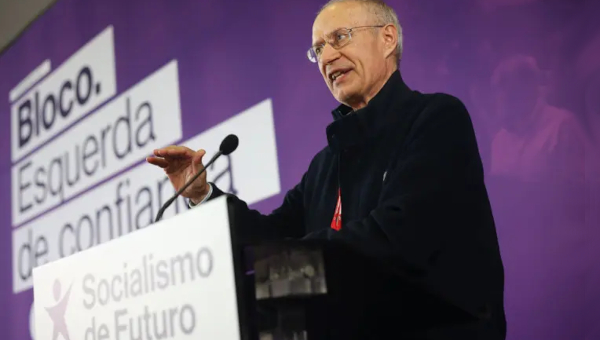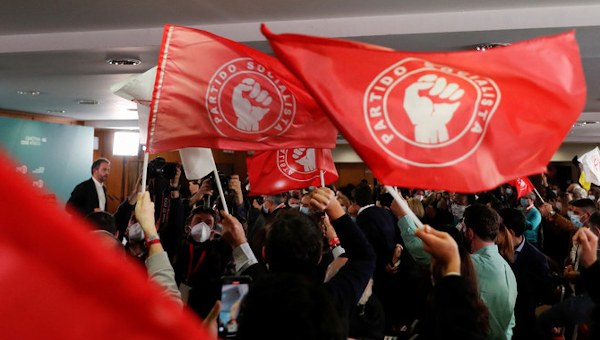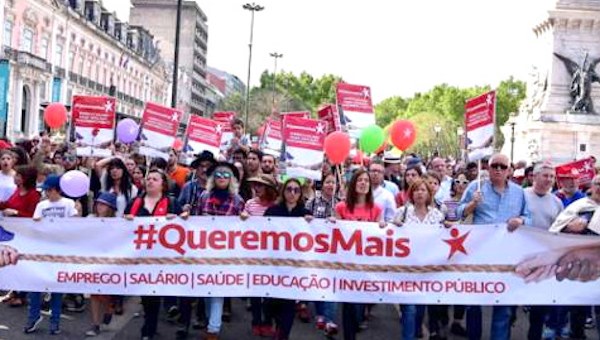Portugal Left Challenges the Trump Tariffs: Protecting Employment, Creating Productive Capacities
Donald Trump began a blackmail strategy with tariffs that has ended in a trade war with several countries. Now, he has paused some tariffs for 90 days and the European Union reciprocated, but the dispute with China continues. The impact of the announced trade war was felt on the stock market, with fluctuations, susceptible to rumours.
In an interview with Esquerda.net, Francisco Louçã, economist, founder and candidate of the Left Bloc for the Braga (Portugal) constituency in the May 18 elections, explains the impact of the tariffs and the disorientation of the Trump administration itself. English translation published at Europe Solidaire Sans Frontières.

Esquerda.net (ES): Two days after Trump’s tariffs came into effect, billionaires who support Trump such as Musk, Zuckerberg, Bezos, and Buffett, lost €488-billion. Musk himself came into direct confrontation with Peter Navarro, Trump’s trade adviser. Could this trade policy politically weaken Trump?
Francisco Louçã (FL): The techno-oligarchs lost and partially recovered with the announcement of the suspension of tariffs for 90 days. But stock market fluctuations are not a reliable indicator of economic evolution; they involve very short-term expectations – in fact, no one has the slightest idea of what will happen after 90 days, and it is well known that iPhones produced in China will double in price when they arrive in the US. The most important indicator will be the evolution of prices, and consequently, people’s incomes (and the value of the dollar, but that’s another matter entirely).
The fact is that China represents 13% of US imports and, even with the suspension of tariffs for other economies, the general level of the tariff rate, according to Paul Krugman’s calculations, will be equivalent to the highest rate practiced in the 20th century – Hoover’s in 1930 – and at that time the country imported three times fewer products. Therefore, even this provisional retreat will not avoid a heavy price effect.
ES: A few days after being in effect, the tariffs have now been suspended. How can we interpret this decision? What bargaining chip does Trump expect to obtain with the imposition of this policy?
FL: He has no strategy. He announces the suspension of tariffs on a social network and shows the uncertainty of his political leadership. Trump and his team float according to last-minute pressures, and I suppose that is what most frightens investors and capital.
ES: How can the European Union, and Portugal specifically, mitigate the impact of tariffs? Retaliate with tariffs, redirect its exports to other markets, and which markets?
FL: The strategic measure – and this indeed is strategy – that truly matters is the combination of diversification, depending less on imports and exports from the US, with an active industrialisation policy. [Portugal’s Left Bloc leader] Mariana Mortágua, in her recent TV debate with the Socialist Party (PS) leader, gave the example of medicines, which is one of those that has the most impact on people’s lives. Replacing imports and expanding exports is fundamental to create productive capacity and not depend on the fascist in the White House, just as it is fundamental to guarantee employment and wages.
ES: Can we read the disproportionate impact of tariffs as a sign of the fragility of economies in a hyper-globalized context?
FL: All of this is the result of a dispute for hegemony. The fascist in the White House only gets a world terrified by his power. The left can only confront it in the name of those who work. This is a fundamental fight for freedom and the rights of workers. •





